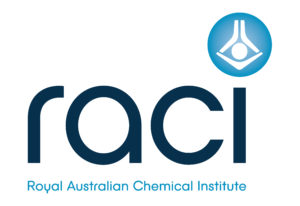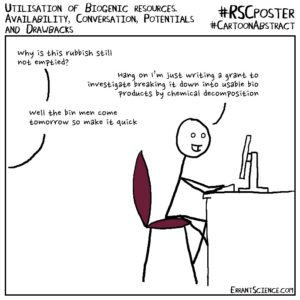Thank you to all who participated – check out the winning posters: here!
The #RSCPoster Twitter Conference is an online event held entirely over Twitter to bring members of the scientific research community together to share their research, network and engage in scientific debate.
We are excited to announce that the 2019 event will be held: Tuesday 5 March 2019, 09:00 GMT – Wednesday 6 March 2019, 09:00 GMT.
Read more about #RSCPoster 2019 and take a look at the winning posters:
Registration now closed.
Get involved:
- Share a poster of your research
- Network with researchers by following #RSCPoster
- Engage in scientific debate by commenting on posters
With subject hashtags spanning the core chemical sciences and related fields, whatever your field, connect and showcase your research:
| Analytical | #RSCPoster #RSCAnalytical |
| Chemical and Biology Interface | #RSCPoster #RSCChemBio |
| Catalysis * | #RSCPoster #RSCCat |
| Education | #RSCPoster #RSCEdu |
| Energy & Sustainability * | #RSCPoster #RSCEnergy |
| Environmental | #RSCPoster #RSCEnv |
| Inorganic | #RSCPoster #RSCInorg |
| Materials | #RSCPoster #RSCMat |
| Nanoscience | #RSCPoster #RSCNano |
| Organic | #RSCPoster #RSCOrg |
| Physical | #RSCPoster #RSCPhys |
| Engineering | #RSCPoster #RSCEng |
* New for 2019
Submit a poster:
- Register to submit a poster in advance – click here and register via the RSC Events page now
- Tweet your poster image with a title, #RSCPoster and relevant subject hashtag(s) – during the 24h conference beginning 5 March 2019, 09:00 GMT
- Discuss and engage – throughout the 24h conference make sure to answer the questions from the community, committee and comment on other #RSCPosters
Check out this video tutorial from Edward Randviir (Manchester Metropolitan University, @EdwardRandviir) explaining how to search for hashtags in Twitter and how to take part!
and here: https://twitter.com/EdwardRandviir/status/1102956739887054850
Top tips for making a poster specifically for Twitter are available on the BetterPosters blog, written by Zen Faulkes (@DoctorZen).
Win a prize:
- Win cash prizes if your #RSCPoster and presentation is deemed best by the 2019 subject chairs.
- Audience participation prize will be awarded to the poster that receives the most retweets. The lucky winner will receive a chemistry-themed board game: Compounded. Compounded is a game where players take on the roles of lab managers, hastily competing to make compounds before they are completed by others or destroyed in an explosion… With thanks to Dr Sam Illingworth (Manchester Metrapolitan University) for supporting this prize.
Thanks to our wonderful sponsors this year who are supporting cash prizes:
Analytical Science Network, Analytical Methods Committee, Chemical Biology and Bioorganic Group, Applied Catalysis Group, Education in Chemistry, Chemistry Education Research and Practice, Alvatek, Environmental Chemistry Group, Applied Materials Chemistry Group, Chemical Nanoscience and Nanotechnology Group, Organic & Biomolecular Chemistry, Physical Chemistry Chemical Physics, Chemical Science, Process Chemistry and Technology Group.
2019 #RSCPoster Subject Chairs:
| #RSCAnalytical | Roy Goodacre, University of Liverpool Martín Resano, University of Zarragoza |
@RoyGoodacre @MartinResano |
| #RSCChemBio | Marloes Peeters, Manchester Metropolitan University Sara Rouhanifard, NorthEastern University |
@Peeters_Marloes @SRouhanifard |
| #RSCCat | Paul Collier, Johnson Matthey James Paterson, BP Jennifer Garden, University of Edinburgh |
@RSC_ACG @garden_jenni |
| #RSCEdu | Emily Seeber, Bedales School and University of Oxford Claire McDonnell, Dublin Institute of Technology Kristy Turner, University of Manchester |
@emily_seeber @clairemcdonndit @doc_kristy |
| #RSCEnergy | Saiful Islam, University of Bath Doug Macfarlane, Monash University |
@SaifulChemistry @DRMacFarlane |
| #RSCEnv | Nadine Borduas, ETH Zurich Helen Casey, University of Huddersfield Peter Vikesland, Virginia Tech |
@nadineborduas @helen_casey @petervikesland |
| #RSCInorg | Charlie O’Hara, University of Strathclyde Marcel Swart, University of Girona Cathleen Crudden, Queen’s University |
@oharalab @marcel_swart @cathleencrudden |
| #RSCMat | Athina Anastasaki, ETH Zurich Chris Foster, Manchester Metropolitan University Mark Olson, Tianjin University |
@AthinaAnastasa1 @CWFoster90 @MARK_A_OLSON |
| #RSCNano | Gemma-Louise Davies, University College London Karen Faulds, University of Strathclyde Sara Skrabalak, Indiana University |
@GemmaLouDavies @FauldsKaren @SaraSkrabalak |
| #RSCOrg | Armando Carlone, Università degli Studi dell’Aquila Ryan Mewis, Manchester Metropolitan University David Nelson, University of Strathclyde |
@armando_carlone @RyanMewis @TheNelsonGroup |
| #RSCPhys | Lars Goerigk, University of Melbourne Laura McKemmish, University of New South Wales Brian Wagner, University of Prince Edward Island |
@lgoer_compchem @laura_mckemmish @DrummerBoy2112 |
| #RSCEng | Jason Hein, The University of British Columbia Tanja Junkers, Monash University Tim Noël, Eindhoven University of Technology |
@procrastiprof @polymerreaction @NoelGroupTUE |
2019 #RSCPoster General Committee:
| Damien Arrigan, Curtin University | @arri_aus |
| Zoe Ayres, Hach | @zjayres |
| James Batteas, Texas A&M University | @jamesbatteas |
| Gonçalo Bernardes, University of Cambridge | @gbernardes_chem |
| Holly Butler, University of Strathclyde | @HollehButler |
| Malika Jeffries-El, Boston University | @Chem_Diva |
| Neil Keddie, University of St Andrews | @theyakman |
| Simon Lancaster University of East Anglia | @S_J_Lancaster |
| Simon Lewis, Curtin University | @SimonWLewis |
| Jennifer Love, The University of British Columbia | @JenniferLoveUBC |
| Nicholas Marshall, USC Aiken | @ChemImprov |
| Jean-Francois Masson, University of Montreal | @Masson_chem |
| Claire Murray, Diamond Light Source | @drclairemurray |
| Warren Piers, University of Calgary | @Wpiers1 |
| Dino Spagnoli, University of Western Australia | @dino_spagnoli |
| Fraser Stoddart, Northwestern University | @sirfrasersays |
| Nick Stone, Univeristy of Exeter | @profnickstone |
| M. Eugenio Vázquez, Universidade de Santiago de Compostela | @ChemBioUSC |
| Renee Webster, Monash University | @reneewebs |
| Jason Woolford, Royal Society of Chemistry | @RealTimeChem |
See information from previous events here or see the previous events on Twitter via the subject hashtag links above or here.
In  the spirit of the recent partnership between the Royal Society of Chemistry and the Royal Australian Chemical Institute we are delighted to announce the RACI will be supporting #RSCPoster by awarding prizes to the best posters presented by Aussie chemists.
the spirit of the recent partnership between the Royal Society of Chemistry and the Royal Australian Chemical Institute we are delighted to announce the RACI will be supporting #RSCPoster by awarding prizes to the best posters presented by Aussie chemists.
Just add the hashtag #ozchem to be in with a chance of winning a year’s free RACI membership and a copy of A Century of Bonds!
A local scientific committee will independently judge the best #ozchem poster and presentation
- Associate Professor Jack Clegg, University of Queensland (@JackKClegg)
- Professor Dianne Jolley, (@DrDianneJolley), together with Dr Darren Koppel, (@DarrenKoppel), both University of Technology Sydney
- Dr Lidia Matesic, (@DrLidiaM)
- Professor Anthony O’Mullane, Queensland University of Technology (@AOMullane_EChem)

Frequently Asked Questions
Do I need to check the copyright and permissions needed for figures or any other parts of my poster which have already been published?
Yes. Copyright owners have the exclusive right to copy their work and to issue copies of their work to the public, and it is an infringement for anyone else to do so without the copyright owner’s permission. If you are reproducing material contained in a Royal Society of Chemistry publication (journal articles, book or book chapters) you may do so providing that you fully acknowledge the original Royal Society of Chemistry publication and include a link back to it. If you wish to include material that has been published by another publisher, you will need to check how the publisher/copyright owner of the third party material wishes to receive permission requests. Information on this can be found on our Permission Requests page at http://www.rsc.org/Publishing/copyright/permission-requests.asp under “Use of third party material in our publications”.
If I include unpublished work in my poster, will I still be able to publish this in a peer-reviewed journal afterwards?
Subject to the usual conditions outlined in the License to Publish, being a part of the Twitter conference will not prevent you using some of the information included in your poster as part of an article in a Royal Society of Chemistry journal. Please note this policy varies by publisher and if you intend to submit your research for publication elsewhere after the event, you should check the individual policy for that journal and publisher.
What size/format should my poster be?
You can choose any dimensions for your poster, the important thing is that the text and figures are clear for people to read and understand. Using Microsoft PowerPoint, we found a text size of between 12-16 were clear to read when saving an A4 slide as a JPEG and uploading to Twitter. Using an A0 template, the text needed to be between 50 and 60 to be legible. You can use any software you like to create your poster, as long as the image you upload is clear for others to read. We recommend testing your poster on Twitter before the conference to make sure you are happy with your image. Check out this blog post by Zen Faulkes for some top tips for making posters with Twitter in mind: http://betterposters.blogspot.com/2019/02/top-tips-for-twitter-posters.html
Please don’t get carried away and use Twitter-bots. We want everyone to actively participate and engage in discussions to get the most out of the event.
Contact us
Event Organizers
Matthew Baker, University of Strathclyde, @ChemistryBaker
Edward Randviir, Manchester Metropolitan University, @EdwardRandviir
Hannah Kerr, Royal Society of Chemistry, @hk_chemistryy
Kathryn Gempf, Royal Society of Chemistry, @KGempf











